10 Best Herbal Decoctions For Altitude Sickness
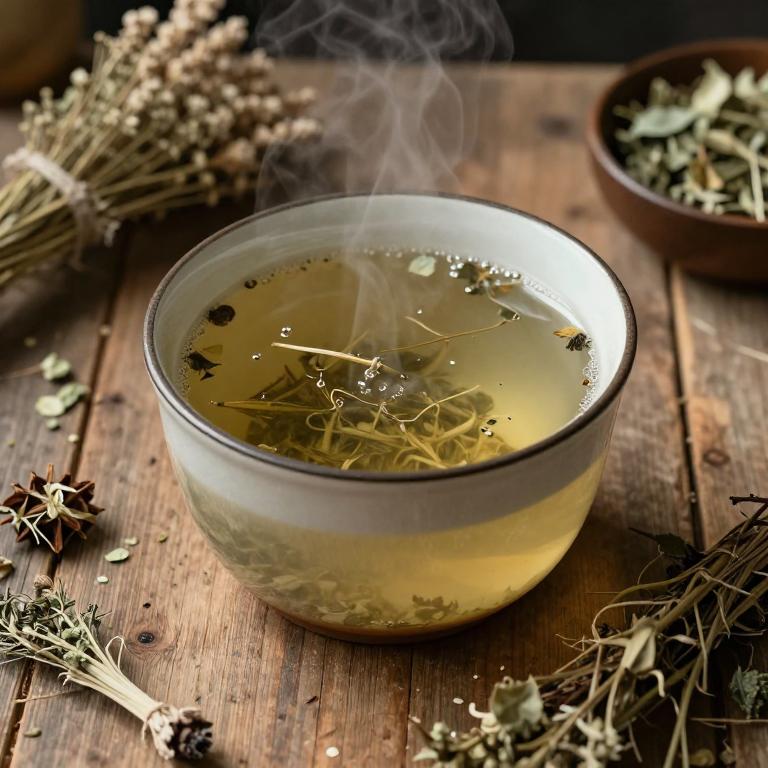
Herbal decoctions have been traditionally used to alleviate symptoms of altitude sickness, often incorporating ingredients like ginger, ginseng, and Echinacea to boost circulation and reduce inflammation.
These preparations are typically made by simmering dried herbs in water to extract their medicinal properties, making them easily consumable and effective for travelers ascending to high altitudes. Many cultures emphasize the use of local herbs, such as Andean maca or Tibetan rhodiola, which are believed to enhance physical endurance and adaptability to thin air. While herbal decoctions can provide symptomatic relief, they should not replace medical advice, especially in severe cases of altitude sickness.
It is important to consult with a healthcare professional before relying solely on herbal remedies for altitude-related health issues.
Table of Contents
- 1. Golden root (Rhodiola rosea)
- 2. Turmeric (Curcuma longa)
- 3. Ashwagandha (Withania somnifera)
- 4. Panax ginseng (Panax ginseng)
- 5. Red sage (Salvia miltiorrhiza)
- 6. Echinacea (Echinacea purpurea)
- 7. Catnip (Nepeta cataria)
- 8. Ginkgo (Ginkgo biloba)
- 9. Stinging nettle (Urtica dioica)
- 10. St. john's wort (Hypericum perforatum)
1. Golden root (Rhodiola rosea)

Rhodiola rosea, a adaptogenic herb, has been traditionally used to enhance physical and mental endurance, making it a potential remedy for altitude sickness.
Its active compounds, such as rosavins and salidrosides, are believed to support the body's ability to cope with oxidative stress and fatigue at high altitudes. Studies suggest that rhodiola rosea may help improve oxygen utilization and reduce symptoms like dizziness, nausea, and fatigue commonly associated with acute mountain sickness. Herbal decoctions made from rhodiola rosea are often consumed as a preventive measure before ascending to high elevations.
However, more clinical research is needed to fully establish its efficacy and safety for treating altitude sickness in diverse populations.
2. Turmeric (Curcuma longa)

Curcuma longa, commonly known as turmeric, has been traditionally used in herbal medicine for its anti-inflammatory and antioxidant properties.
Recent studies suggest that curcumin, the active compound in turmeric, may help alleviate symptoms of altitude sickness by reducing oxidative stress and inflammation in the body. Herbal decoctions made from Curcuma longa are often prepared by boiling the rhizome in water to extract its beneficial compounds. These decoctions are believed to support respiratory function and enhance oxygen utilization at high altitudes.
While more research is needed, some individuals use turmeric-based remedies as a complementary approach to managing altitude sickness.
3. Ashwagandha (Withania somnifera)
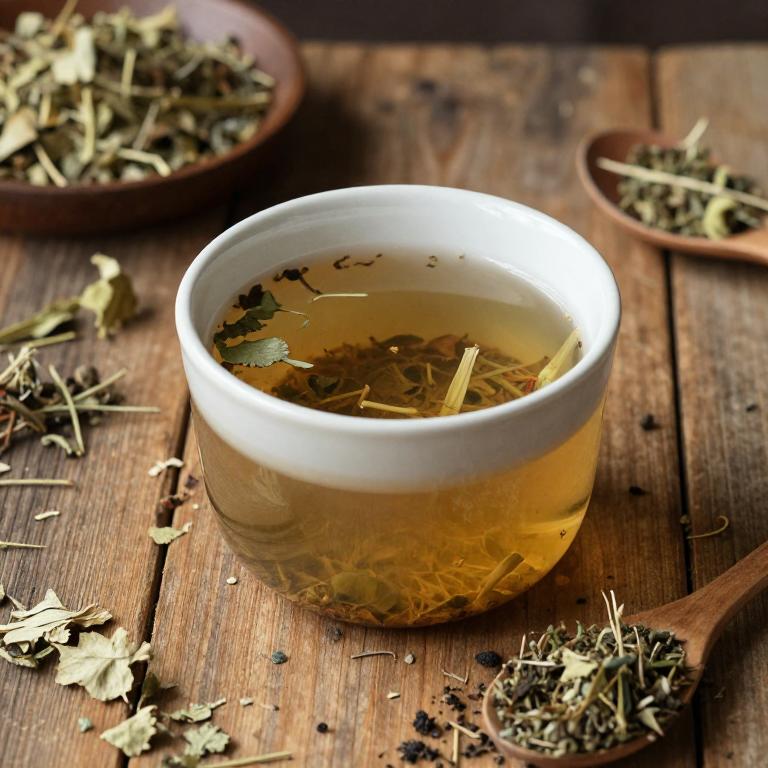
Withania somnifera, commonly known as ashwagandha, has been traditionally used in Ayurvedic medicine for its adaptogenic properties, which may help the body manage stress and fatigue.
Herbal decoctions made from Withania somnifera are believed to support the body's ability to cope with environmental stressors, including those associated with high altitude. Some studies suggest that the active compounds in ashwagandha, such as withanolides, may enhance oxygen utilization and reduce oxidative stress, which are common issues at high altitudes. While there is limited clinical evidence specifically on its efficacy for altitude sickness, preliminary research and traditional use indicate potential benefits for altitude adaptation.
As with any herbal remedy, it is advisable to consult a healthcare professional before using Withania somnifera for altitude sickness, especially in combination with other treatments.
4. Panax ginseng (Panax ginseng)
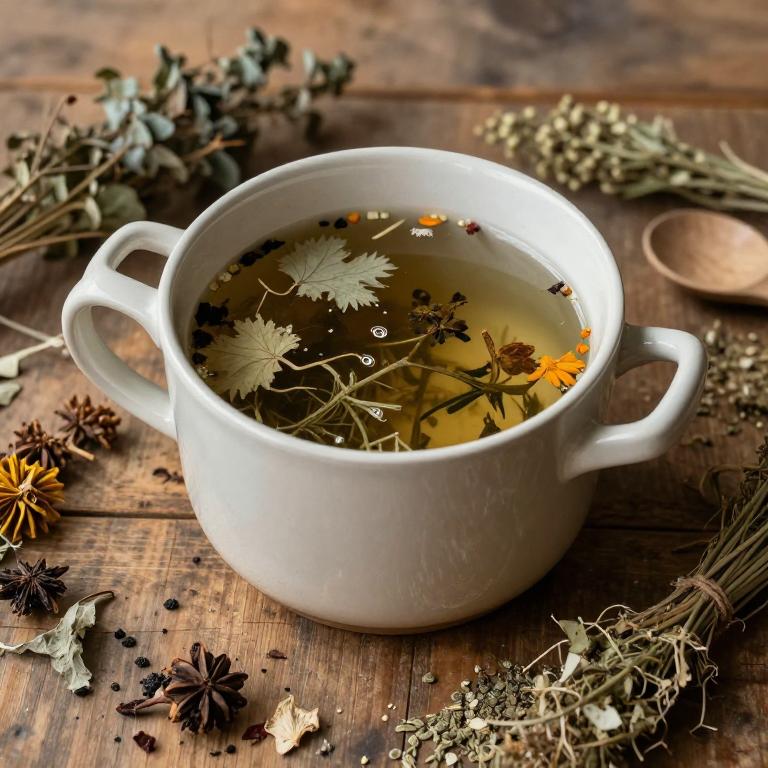
Panax ginseng, a widely used adaptogenic herb, has been explored for its potential in mitigating the symptoms of altitude sickness due to its ability to enhance physical endurance and improve oxygen utilization.
Herbal decoctions made from Panax ginseng typically involve simmering the root in water for several hours to extract its active compounds, such as ginsenosides, which are believed to support cellular respiration and reduce oxidative stress. Some studies suggest that these decoctions may help alleviate fatigue, dizziness, and shortness of breath commonly experienced at high altitudes. However, more rigorous clinical trials are needed to confirm its efficacy and establish safe dosages for altitude sickness prevention.
Despite its traditional use in Chinese medicine, Panax ginseng should be used cautiously and in consultation with a healthcare provider, especially when combined with other treatments for altitude-related illnesses.
5. Red sage (Salvia miltiorrhiza)
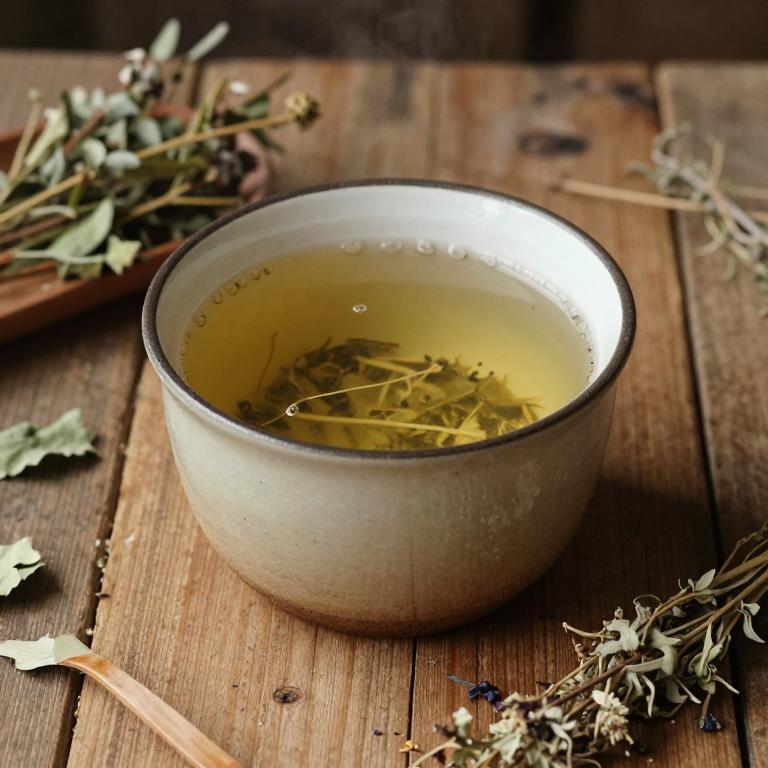
Salvia miltiorrhiza, commonly known as Danshen, is a traditional Chinese herb that has been used for centuries to promote blood circulation and reduce inflammation.
Its herbal decoctions are believed to support the body's ability to adapt to high altitudes by improving oxygen utilization and reducing the risk of altitude sickness. Studies suggest that the active compounds in Salvia miltiorrhiza, such as tanshinone and salvianolic acid, may help alleviate symptoms like headaches, dizziness, and fatigue associated with altitude sickness. These decoctions are often prepared by boiling the dried roots in water and consumed as a tea or supplement.
While more research is needed, many climbers and travelers to high-altitude regions use Salvia miltiorrhiza as a natural remedy to support their body's response to thin air.
6. Echinacea (Echinacea purpurea)

Echinacea purpurea, commonly known as purple coneflower, has been traditionally used in herbal medicine for its immune-boosting properties.
While it is more widely recognized for its role in supporting the immune system against colds and infections, some preliminary studies suggest that its anti-inflammatory and antioxidant compounds may offer potential benefits in mitigating the effects of altitude sickness. Herbal decoctions made from Echinacea purpurea are typically prepared by simmering the dried roots and flowers in water, resulting in a concentrated herbal tea. However, there is limited clinical evidence specifically linking Echinacea to the prevention or treatment of altitude sickness, and more research is needed to confirm its efficacy in this context.
As with any herbal remedy, it is important to consult with a healthcare professional before using Echinacea purpurea, especially at high altitudes where medical conditions can develop rapidly.
7. Catnip (Nepeta cataria)
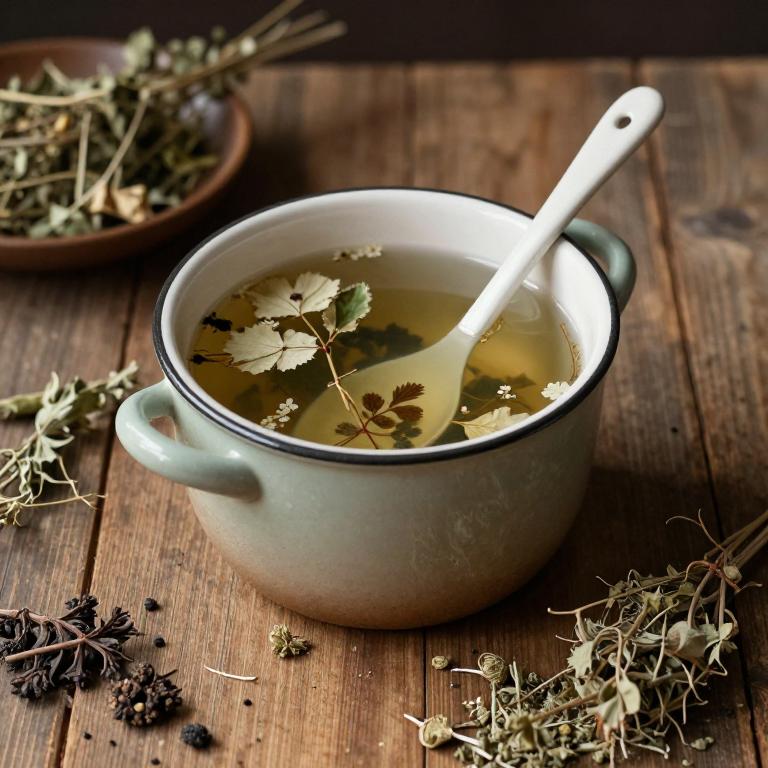
Nepeta cataria, commonly known as catnip, has been traditionally used in herbal medicine for its potential effects on altitude sickness.
While scientific evidence is limited, some studies suggest that nepeta cataria may help alleviate symptoms such as nausea and dizziness associated with high-altitude exposure. Herbal decoctions made from dried catnip leaves are often prepared by boiling the plant material in water and consuming the infusion. These decoctions are believed to have mild sedative and circulatory benefits that may support the body's adaptation to lower oxygen levels at higher altitudes.
However, it is important to consult with a healthcare professional before using catnip or any herbal remedy for altitude sickness, as individual responses can vary and interactions with other medications may occur.
8. Ginkgo (Ginkgo biloba)
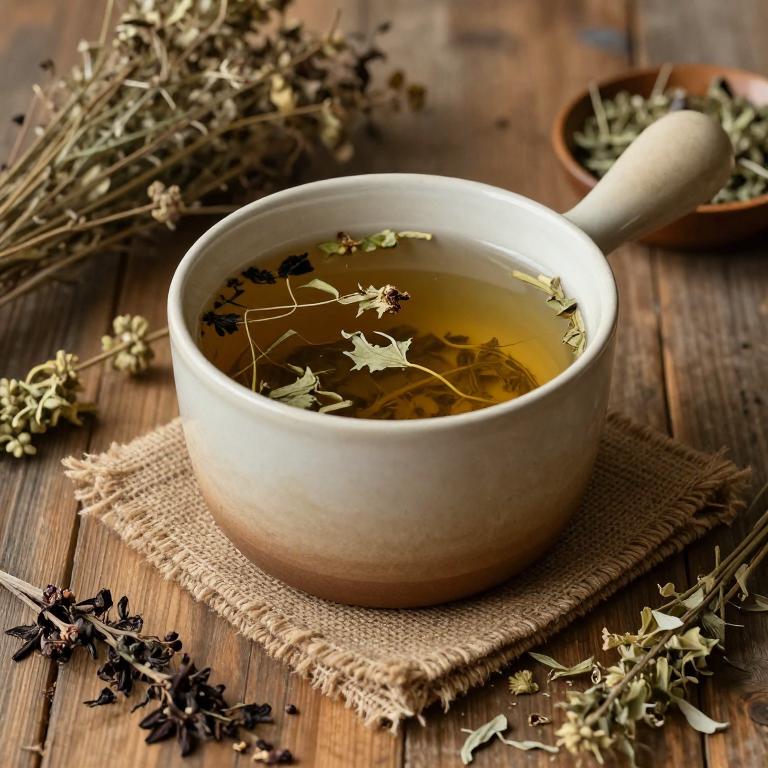
Ginkgo biloba herbal decoctions have been explored for their potential in alleviating symptoms of altitude sickness due to their rich content of bioactive compounds such as flavonoids and terpenes, which are believed to enhance circulation and oxygen utilization.
These decoctions may help improve blood flow to the brain and other vital organs, potentially reducing the risk of high-altitude cerebral edema and pulmonary edema. While some preliminary studies suggest that ginkgo biloba might support acclimatization at high altitudes, more rigorous clinical trials are needed to confirm its efficacy and safety in this context. Traditional use of ginkgo biloba in herbal medicine often involves boiling the leaves to extract its beneficial compounds, which can then be consumed as a tea or tincture.
However, individuals considering ginkgo biloba for altitude sickness should consult with a healthcare professional to ensure it is appropriate for their specific health conditions and altitude exposure.
9. Stinging nettle (Urtica dioica)

Urtica dioica, commonly known as stinging nettle, has been traditionally used in herbal medicine for its purported health benefits, including its potential to alleviate symptoms of altitude sickness.
When prepared as a decoction, the plant's leaves and stems are boiled to extract their active compounds, which may help reduce inflammation and support respiratory function. Some studies suggest that the high concentration of minerals and antioxidants in stinging nettle may aid in improving oxygen utilization and reducing the body's stress response at high altitudes. However, while anecdotal evidence supports its use, scientific research on its efficacy for altitude sickness remains limited.
As with any herbal remedy, it is advisable to consult a healthcare professional before using urtica dioica, especially for individuals with pre-existing medical conditions or those taking other medications.
10. St. john's wort (Hypericum perforatum)

Hypericum perforatum, commonly known as St. John's wort, is traditionally used in herbal medicine for its potential benefits in treating various ailments, including altitude sickness.
While scientific evidence supporting its efficacy for altitude sickness is limited, some studies suggest that its anti-inflammatory and antioxidant properties may help alleviate symptoms such as headaches and fatigue associated with high-altitude exposure. Herbal decoctions of Hypericum perforatum are typically prepared by steeping the dried herb in hot water, and they are often consumed as a tea or tincture. Although it is generally considered safe for short-term use, individuals should consult with a healthcare provider before using St. John's wort, especially if they are taking other medications due to potential interactions.
Despite its traditional use, more research is needed to fully understand its role in preventing or treating altitude sickness.